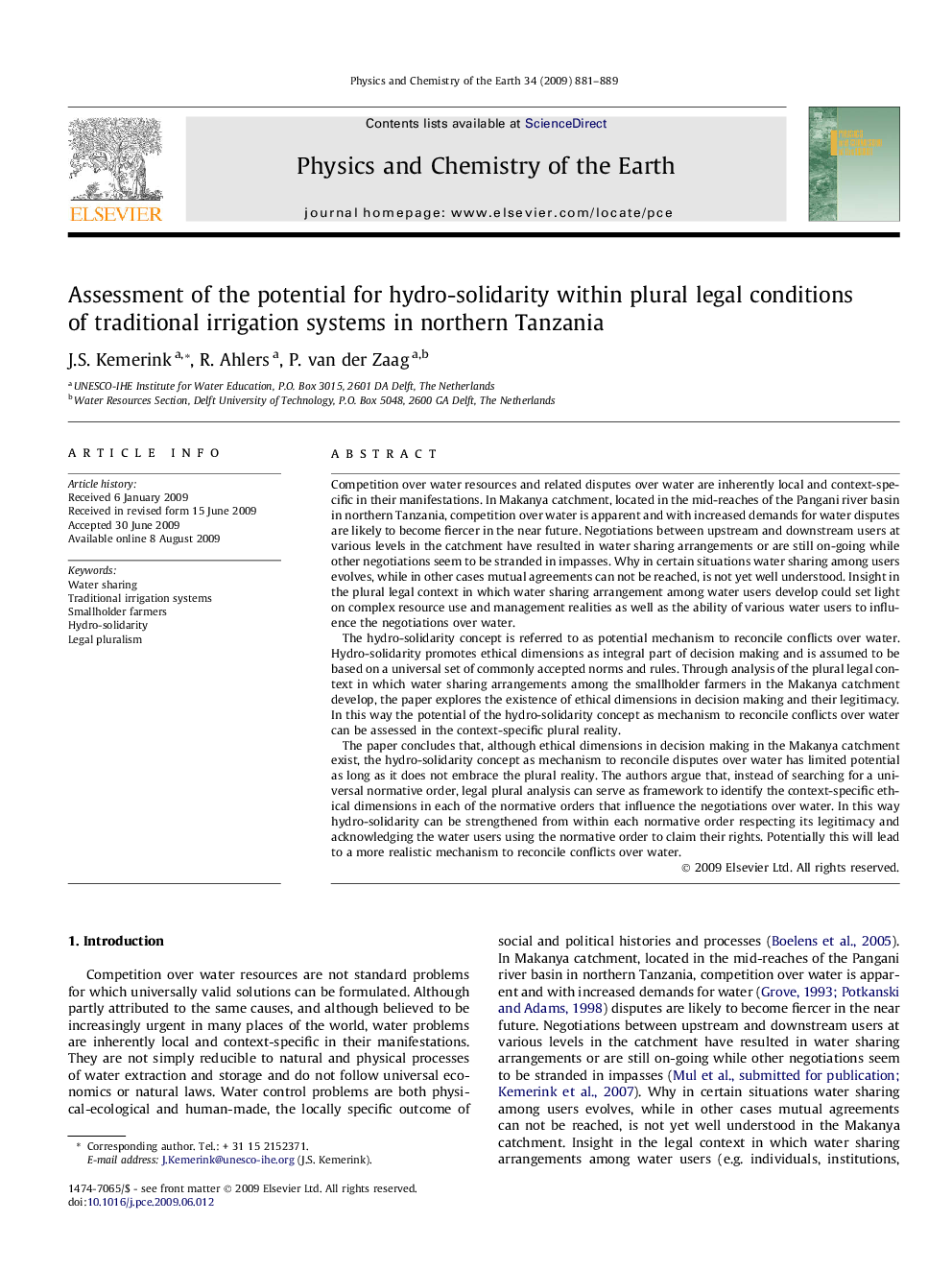| Article ID | Journal | Published Year | Pages | File Type |
|---|---|---|---|---|
| 4722227 | Physics and Chemistry of the Earth, Parts A/B/C | 2009 | 9 Pages |
Competition over water resources and related disputes over water are inherently local and context-specific in their manifestations. In Makanya catchment, located in the mid-reaches of the Pangani river basin in northern Tanzania, competition over water is apparent and with increased demands for water disputes are likely to become fiercer in the near future. Negotiations between upstream and downstream users at various levels in the catchment have resulted in water sharing arrangements or are still on-going while other negotiations seem to be stranded in impasses. Why in certain situations water sharing among users evolves, while in other cases mutual agreements can not be reached, is not yet well understood. Insight in the plural legal context in which water sharing arrangement among water users develop could set light on complex resource use and management realities as well as the ability of various water users to influence the negotiations over water.The hydro-solidarity concept is referred to as potential mechanism to reconcile conflicts over water. Hydro-solidarity promotes ethical dimensions as integral part of decision making and is assumed to be based on a universal set of commonly accepted norms and rules. Through analysis of the plural legal context in which water sharing arrangements among the smallholder farmers in the Makanya catchment develop, the paper explores the existence of ethical dimensions in decision making and their legitimacy. In this way the potential of the hydro-solidarity concept as mechanism to reconcile conflicts over water can be assessed in the context-specific plural reality.The paper concludes that, although ethical dimensions in decision making in the Makanya catchment exist, the hydro-solidarity concept as mechanism to reconcile disputes over water has limited potential as long as it does not embrace the plural reality. The authors argue that, instead of searching for a universal normative order, legal plural analysis can serve as framework to identify the context-specific ethical dimensions in each of the normative orders that influence the negotiations over water. In this way hydro-solidarity can be strengthened from within each normative order respecting its legitimacy and acknowledging the water users using the normative order to claim their rights. Potentially this will lead to a more realistic mechanism to reconcile conflicts over water.
